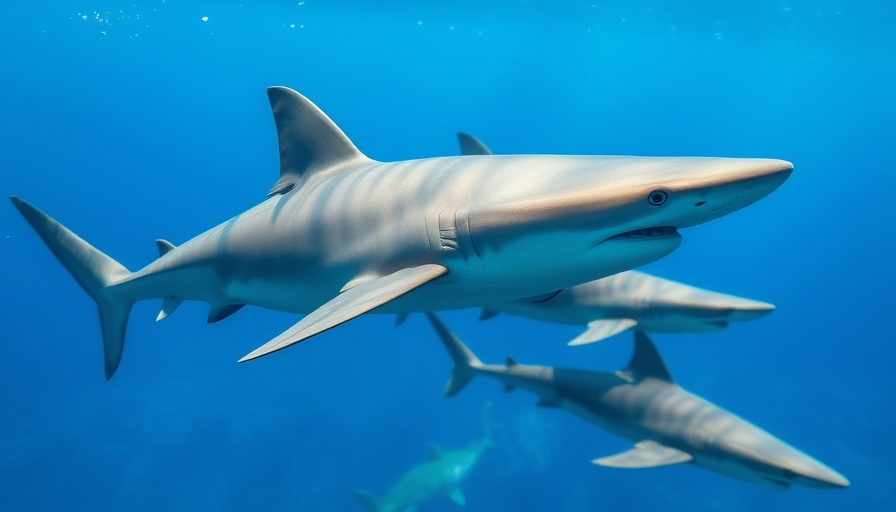
Shark Teeth: Victims of Ocean Acidification
Sharks, renowned for their ferocious hunting prowess and ability to regrow teeth, face an alarming threat from climate change. Recent studies reveal that as our oceans grow more acidic, the very teeth that enable these apex predators to thrive may be crumbling. This unprecedented research underscores a subtle yet critical challenge posed by environmental changes to marine ecosystems.
Understanding Ocean Acidification and Its Impacts
Ocean acidification, primarily driven by human-induced carbon emissions, is resulting in a consistent decrease of pH levels in seawater. Currently, oceanic pH sits at about 8.1, but projections estimate that by 2300, it could plunge to as low as 7.3. This shift in acidity can lead to a tenfold increase in ocean acidity, making these waters potentially perilous for countless marine species.
Sharks and Their Unmatched Adaptability
Sharks’ remarkable ability to replace teeth is essential not only for their survival but also for maintaining the balance of marine life. Evolution has equipped them with a robust and efficient dental system designed for hunting. However, even their highly mineralized teeth face vulnerability in the face of increasingly acidic conditions. This revelation by researchers at Heinrich Heine University Düsseldorf showcases that even the most evolved predatory structures can succumb to environmental changes.
Consequences of Weaker Teeth on Marine Ecosystems
The crumbling of shark teeth poses a serious risk to their predation effectiveness. Weaker teeth could hinder sharks from effectively seizing prey, which could disrupt the intricate food webs of the ocean. As apex predators, sharks play a crucial role in maintaining healthy marine ecosystems by controlling the populations of other marine animals.
Global Implications and Future Predictions
The findings from this research illustrate a broader trend of ecological imbalance linked to climate change. As oceanic conditions continue to deteriorate, we can anticipate profound changes not only in shark populations but also throughout marine biodiversity. Protecting and understanding these species becomes increasingly essential as they serve as indicators of ocean health.
What Can Be Done? Actionable Insights for the Future
To address these looming challenges, immediate action is necessary. Reducing carbon emissions on a global scale is paramount, along with implementing conservation efforts that target vulnerable marine species like sharks. Public awareness and policy change can drive significant progress in terms of preserving our marine ecosystems.
Engaging with the Shark Dilemma: How You Can Help
As we grapple with the realities of climate change, individual actions matter. Supporting sustainable seafood choices, advocating for policies that aim to reduce carbon footprints, and participating in local marine conservation efforts can all contribute positively. Engaging with organizations focused on ocean health can also amplify your impact, especially here in Dallas, where lifestyle choices can reflect a commitment to preserving our planet.
 Add Element
Add Element  Add Row
Add Row 



Write A Comment